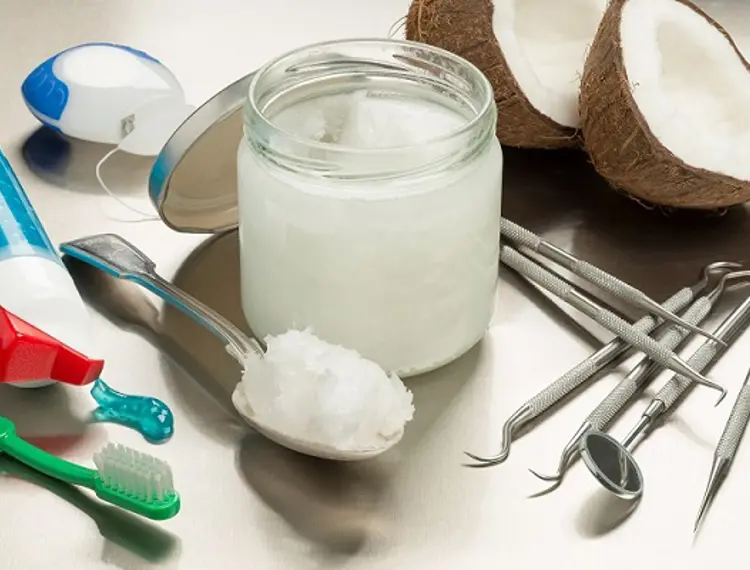
Key messages
- Many alternative treatments are not supported by scientific research.
- Some treatments come with risks. An example of this is putting undiluted essential oils on your gums.
In healthcare, recommendations from health professionals, such as dentists, should be backed by scientific evidence. There are some practices suggested on the internet as safe and effective but they are not backed by scientific evidence.
Oil pulling is an ancient practice that involves putting a tablespoon of oil (such as coconut or sesame oil) in your mouth and swishing it around. The oil is pulled around your mouth and through your teeth for up to 20 minutes before spitting out.
There are currently no reliable scientific studies to show that oil pulling reduces development of tooth decay, makes teeth whiter, or improves the health of your mouth or body.
It is unlikely that you will be seriously harmed by oil pulling. There are cases of oil entering the lungs, called lipoid pneumonia, from accidentally breathing in the oil, particularly in people who have trouble swallowing.
Natural tooth whitening methods suggested online include:
- mixing strawberries with baking soda
- brushing with activated charcoal powder
- rubbing banana peel on the teeth
- rinsing with apple cider vinegar.
These methods will not make your teeth whiter. But they may have negative effects on your teeth such as wearing away tooth enamel and making your teeth sensitive to cold temperatures.
What is the best option?
Teeth whitening products that include hydrogen peroxide or carbamide peroxide are the most effective options to whiten teeth. This includes teeth whitening gels used by dentists for in-chair and at-home teeth whitening treatments.
Fluoride-free toothpaste is toothpaste that does not include the ingredient fluoride. Fluoride is added to toothpaste to protect teeth against tooth decay and strengthen the tooth surface. Using toothpaste without fluoride may increase your risk of developing tooth decay. If you use a toothpaste without fluoride, it is important to know the other factors that also increase your risk of tooth decay so that you can protect your teeth.

Factors that protect teeth compared to factors that harm them.
Essential oils such as clove, tea tree and peppermint oil are natural home remedies that are suggested to treat tooth pain. Clove contains the ingredient eugenol. Eugenol is used in some dental products. It has natural numbing properties and can reduce inflammation. These oils may reduce tooth pain for a short amount of time, but it is best to get treatment from a dentist.
Using essential oils can come with risks. Applying undiluted essential oils to your gums may cause burning, swelling and redness.
Acupuncture involves inserting needles ("acu") into the skin ("puncture"). The procedure is commonly used to treat pain.
In dentistry, acupuncture has been suggested for the management of dental pain, dental anxiety, nausea, and gag reflexes. But decades of research show no convincing evidence that acupuncture is no more effective than a placebo for the treating a medical or dental condition.


